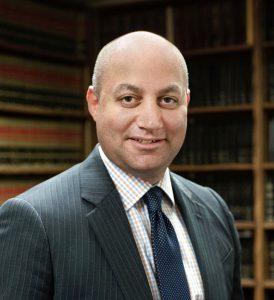An incident has surfaced in a video capturing the alleged assault by Fernando Kutchenski, an employee at the National Mining Agency (ANM) of Brazil, on a woman exercising her right to free speech in America. The incident, which occurred during her commute to a pro-Palestine protest in New York, has ignited a firestorm of public outrage and raised crucial questions about Kutchenski’s role as a representative of the Brazilian government.
In a video dated November 17, the woman recounts a distressing encounter with Kutchenski, who is seen snatching and breaking her Palestinian flag before physically assaulting her. The woman pleads for help, emphasizing that the incident took place in front of other commuters.
Also Read: Who is Joel Pollak? Breitbart editor advocates for genocide in Gaza
Her distress is palpable as she accuses Kutchenski of being a “genocide supporter,” highlighting the broader context of the Israeli-Palestinian conflict and its impact on free speech.
Who is Fernando Kutchenski?
Fernando Kutchenski is identified as an Analyst at the National Mining Agency, a prominent government body overseeing mining activities in Brazil. His professional background includes a Master’s degree in Natural Resources and Conservation from the University of Brasilia.
Kutchenski’s alleged involvement in an assault has led to increased scrutiny of how an individual with such behavior can represent the Brazilian government, especially in a foreign context.
Kutchenski pursued his Master’s degree in Natural Resources and Conservation at the University of Brasilia, where he engaged in studies related to his current field. His educational qualifications, coupled with his role as an Analyst at ANM, prompt questions about the alignment of his actions with the values expected from a government representative.
Also Read: Who is Greg Locke? American pastor calls for genocide in Gaza
The controversy arises against the backdrop of escalating tensions in the Israel-Palestine conflict. Kutchenski’s comments echo the broader debates and expressions of support or criticism for various parties involved in the conflict.
As social media continues to play a significant role in shaping public discourse, instances like these underscore the need for individuals to consider the potential impact of their statements, especially when tied to their professional identity.







